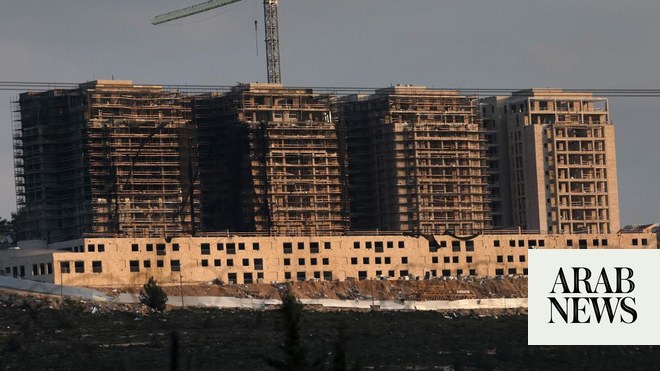
King Abdullah urges further efforts to calm tensions in occupied territories during talks with US president’s adviser
AMMAN: Israel and Palestinian officials pledged at a meeting in Jordan on Sunday to de-escalate surging violence.
The talks brought together top Israeli and Palestinian security chiefs for the first time in many years, officials said, and aimed to restore calm in Israel, the Israeli-occupied West Bank and the Gaza Strip.
The meeting was held as anxiety mounts of escalation in the runup to the holy month of Ramadan that begins in late March.
Israel committed to stop authorization of any settler outposts in the occupied West Bank for six months during the meeting.
In a joint statement at the end of the meeting in Aqaba, Israel and Palestinian officials said they would work closely to prevent "further violence" and "reaffirmed the necessity of committing to de-escalation on the ground.”
Host nation Jordan, along with Egypt and the US, considered "these understandings as major progress towards re-establishing and deepening relations between the two sides," the statement said.
The five parties agreed to meet again in the Egyptian city of Sharm El-Sheikh next month to achieve the goals discussed on Sunday.
Reuters reported on Sunday that US President Joe Biden’s adviser on the Middle East, Brett McGurk, would also be present at the talks.
Jordan’s King Abdullah on Sunday met McGurk and highlighted the need to step up efforts toward calm and de-escalation in the Palestinian territories, and to cease any unilateral measures that could lead to instability and undermine peace prospects.
According to a Jordanian royal court statement, the king called for the relaunch of negotiations between the Palestinians and Israelis in a bid to reach a just and comprehensive peace based on the two-state solution, guaranteeing the establishment of an independent, viable, and sovereign Palestinian state on the June 4, 1967, lines, with East Jerusalem as its capital.
The king noted Jordan’s commitment to safeguarding holy sites in Jerusalem, under the Hashemite Custodianship, the statement said.
In February, King Abdullah met with Biden in Washington, where he called for a resumption of the stalled Palestinian-Israeli peace negotiations, and in January he met Israeli Prime Minister Benjamin Netanyahu in Amman where, the royal court said at the time, he had pointed out the need to maintain calm and end violence.
Palestinian factions, including the Hamas group, which governs the Gaza Strip, condemned the West Bank-based Palestinian Authority for taking part in the meeting.
In a joint statement, several unnamed Palestinian factions in Gaza reportedly denounced the Palestinian Authority’s participation in the Aqaba meeting, describing its involvement as a “crime and in violation of the national consensus,” adding the talks were “rejected by all Palestinian factions and people.”
They claimed the Aqaba meeting was scheduled to discuss “security schemes to annihilate the Palestinian resistance.”
Political analyst Amer Sabaileh said: “The situation is expected to go out of control in the West Bank which will then give the green light to the Israeli government to adopt more escalatory measures in the occupied territories.
“The most dangerous escalation would be isolating the Palestinian Authority and excluding it from any political formula (to resolve the conflict) so that Israel could annex more Palestinian land,” he added.












